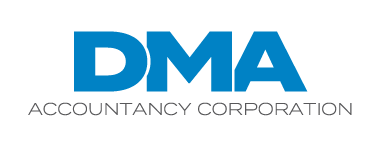As the coronavirus disease (COVID-19) outbreak continues to impact people around the world, we’ve received many questions and concerns about how to navigate these uncertain times. We will do our best to provide you updates as the information becomes available.
The federal tax filing deadline has been extended to July 15, 2020.
Taxpayers getting a refund are encouraged to file their taxes now to get their money. The IRS expects to continue to process refunds as normal. The IRS typically issues nine out of 10 tax refunds within 21 days or less from acceptance with e-file and direct deposit – the fastest way to get your refund.
Do I need to file an extension to file past April 15? No, you do not need to take any action. The July 15 extension applies to all taxpayers automatically.
Will the extension of the tax deadline delay my tax refund? No, the IRS expects to continue to process refunds as normal but encourages all taxpayers to file now.
Do I have more time to contribute to my IRA? Yes, you now have until July 15, to make a 2019 contribution to your IRA.
Will the deadline for my state taxes also be extended? California has conformed to the new July 15 tax deadline.
The Coronavirus Stimulus Package
The Senate and House have passed the Coronavirus Aid, Relief, and Economic Security Act (CARES Act), a $2 trillion coronavirus stimulus bill. This could mean up to $1,200 for individuals, $2,400 for joint taxpayers and an additional $500 for each qualifying child.
Stimulus payments will be based on information from your most recent tax filings, either 2019 or 2018 (if you have not filed this season). However, the amount paid to you now will be reconciled on next year’s tax return based on your current 2020 situation.
The drafted legislation also allows the government to leverage the direct deposit information in your tax year 2019 or 2018 tax return to deposit these stimulus funds electronically into your account. So what does all this mean?
The first step you should take right now is to file your 2019 tax return, if you have not already. And, if you are getting a tax refund, choose to receive that refund through direct deposit. This will ensure that the IRS has the most current tax filing and direct deposit information for you, which they will use to determine individual stimulus amounts.
Relief for Individuals and Businesses with Tax Payments
The extension of the federal tax filing deadline also applies to tax payments. Taxpayers that owe money can defer federal tax payments, interest free and penalty free until July 15. This deferment applies to all taxpayers, including individuals, trusts and estates, corporations and other non-corporate tax filers as well as those who pay self-employment tax. Taxpayers can defer tax year 2019 federal tax payments regardless of the amount owed. This deferment also applies to tax year 2020 estimated tax payments previously due on April 15, 2020.
Deferment of federal tax payments means that if you owe money on your federal taxes, you will get more time to pay what you owe.
How do I know if I qualify for the extended payment deadline? And do I need to file an extension to get it? According to the Secretary of Treasury, anyone with a Federal Tax Payment related to their 2019 taxes and their tax year 2020 estimated tax payments due 4/15/20 can defer their tax payment, free of penalties and interest for 90 days for purposes of the relief.
Does this extension apply to 2020 quarterly estimated tax payments? First quarter 2020 estimated income tax payments are postponed from April 15 to July 15, 2020. However, second quarter 2020 estimated income tax payments are still due on June 15, 2020.
What if I need more time past the July 15 deadline to pay? If you need additional time, beyond July 15, you will need to file an extension. An extension will give you until October 15, 2020 to file your taxes, but you will still need to pay any taxes owed by July 15. Payments after July 15 will be subject to penalties and interest.
If you have not filed your 2019 tax returns we are here to help you when you are ready. We will continue to provide you with periodic updates and information becomes available.
Please continue to check back here or our Facebook page https://www.facebook.com/dmaacct/ for the most up to date tax information and changes in response to COVID-19.
Please be safe and stay healthy.


Recent Comments